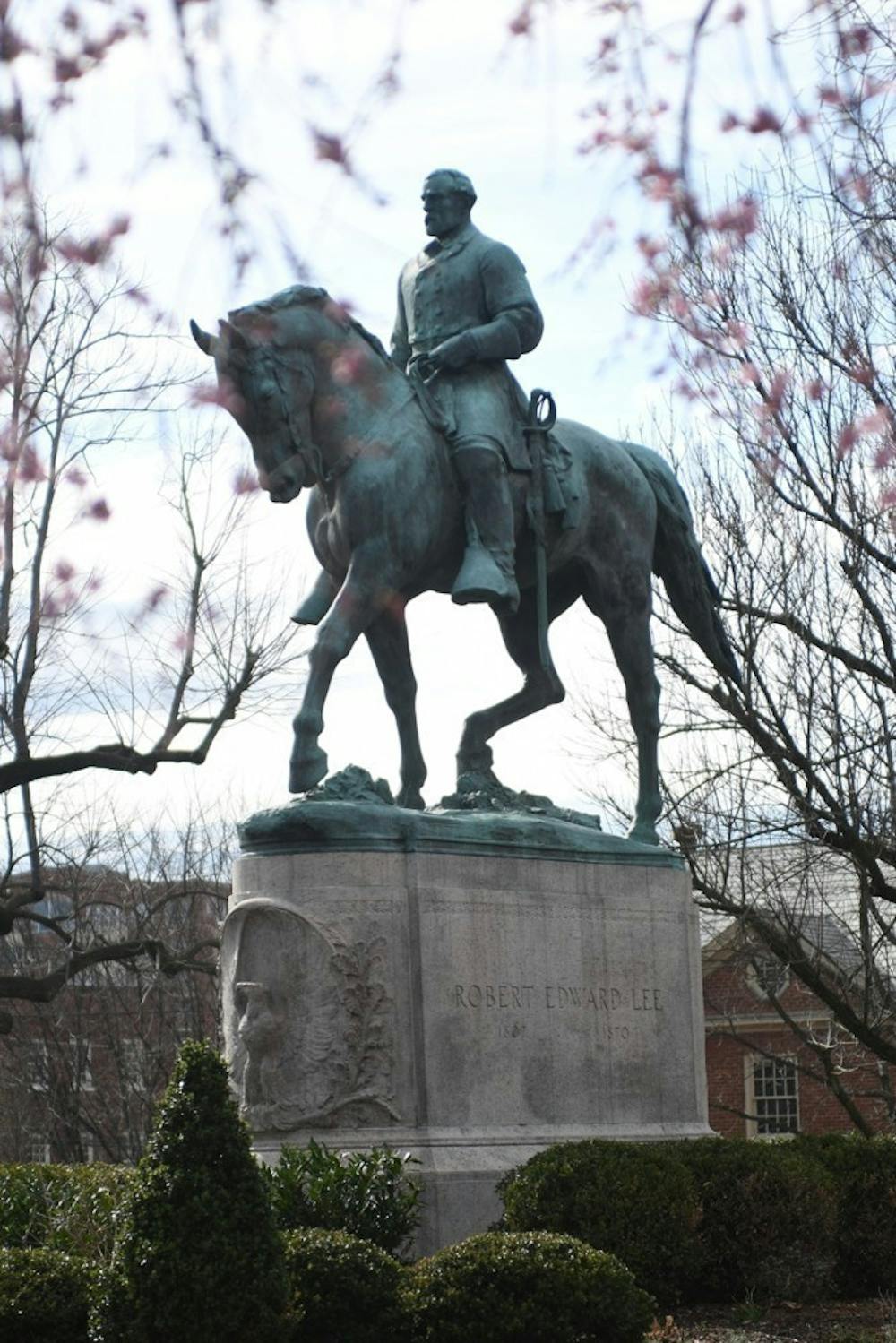With a Democratic majority now in the General Assembly, the 1997 monuments statute that prevents the Charlottesville City Council from removing the Confederate statues downtown has the opportunity to be repealed.
Currently, the law states that a locality can permit, within its geographical limits, the erection of monuments or memorials, and if one is erected, “it shall be unlawful for the authorities of the locality, or any other person or persons, to disturb or interfere with any monuments or memorials.”
This statute has prevented Charlottesville from being able to remove monuments including the Confederate General Robert E. Lee statue downtown, which was the center of the violence that erupted in August 2017.
The white supremacist “Unite The Right” Rallies of Aug. 2017 occured in part in Market Street Park in Charlottesville, surrounding the Lee statue. Earlier that year, the City Council had voted for the statue’s removal, a decision the rally purported to push back against.
“The horrific events of August 11th and 12th brought increased attention to this issue, along with increased attention to the more pressing and broader issues of systemic racism and inequality in Charlottesville,” said Jackson Samples, fourth-year College student and president of the University Democrats. “There are also new calls for re-naming buildings around Grounds such as Alderman Library, indicating continued awareness surrounding the issues of race and memorialization.”
In January 2019, a bill was proposed to modify the law, but has not yet been approved by the General Assembly. The bill proposed to amend and reenact the law, adding that “a locality may also remove or provide for the upkeep, maintenance or contextualization of any such monument or memorial located in its public space, regardless of when erected.”
According to incoming Charlottesville City Councilor Sena Magill, the new General Assembly provides the opportunity for the statute to be readdressed.
Since the votes on this issue have largely fallen along party lines, previous attempts in the Republican-controlled General Assembly have not passed. With Democrats now having control of the General Assembly and the Governor’s office for the first time since 1993, there is an opportunity for the amendment to make it through.
Magill, who believes that the statute should be repealed, would prefer the statues to be put in a separate area to be looked at from a historical lens, rather than removed completely.
“The Jackson, Lee and Lewis and Clark statues should be moved to an area that people go to to see them so that they are further contextualized with history,” Magill said. “People should have to go to learn about them, they shouldn’t just be monuments towering over you as you walk by.”
According to Magil, there has been an increase in concern among the Charlottesville community surrounding the removal of these statues.
“I have seen people who didn’t really care about the statues a few years ago,” Magil said. “I have definitely seen them come to the perspective that regardless of what they [the statues] used to mean, they now mean something else and we don’t want them here anymore.”
Although unable to speak for all University communities, Samples also believes that a “sizable majority of students” support taking down the Confederate statues as well.
“UDems supports the immediate removal of all Confederate monuments and statuary in Charlottesville, and UDems supports a speedy legislative solution to getting this done,” Samples said. “These are monuments to white supremacy that were built with the purpose of intimidating communities of color, and there is no reason for them to remain a second longer.”
The Dillon Rule is an established doctrine that restricts the power of localities, only allowing them to have the powers specifically granted from the state government. Along with many states, Virginia follows this rule, meaning that localities have to ask state governments for policy approvals.
“The persistence of the Dillon Rule has severely limited Charlottesville and other progressive communities’ ability to remove racist monuments, ban assault weapons, raise the minimum wage, and ban fossil fuel extraction, among other things,” Samples said. “The Dillon Rule is an anachronism barring serious progress from being made across the Commonwealth.”
According to Law prof. Richard Schragger, before 1997, the removal statute did not apply to cities. However, after amending the statute to include all localities, a debate grew around whether or not statues built before 1997 could be removed.
Schragger said Virginia Attorney General Mark Herring (D) has ruled that the statute does not apply to memorials erected before 1997 — however, Charlottesville Circuit Court Judge Richard E. Moore blocked the removal of the Lee statue on the grounds that the statute applies to all statues in the City.
“I’ve taken the position that the statute doesn’t apply because it never applied to cities before 1997 and the monuments were built before that,” Schragger said. “My position is consistent with the Attorney General but inconsistent with the Judge.”
Multiple defacements have been recently found on the Confederate statues downtown. Last September, the Lee statue was found defaced with a spray painted “1619” on the base on the statue, signifying the date that the enslaved Africans were first brought to North America. In October, the Lee and Stonewall Jackson statues were also discovered with chipping features.







